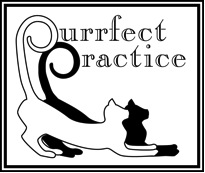Cajun
Cajun or Creole
02/08/23 19:12 Filed in: Culture
If you go to New Orleans for Mardi Gras or other reasons, or spend some time in Louisiana you will hear the terms Cajun or Creole. What is the difference?
The French founded New Orleans in 1718, naming it for the Duke of Orleans. At that time, the term “Creole” referred to non-Indigenous people born in colonized countries of the Americas. This was the era of enslavement, so early on, the term was exclusively for white people. In New Orleans, that meant the children of the white French ruling class.
While “Creole” is geographically associated with “Cajun,” they are not the same. Everywhere around Louisiana, you’ll also hear about Cajun food and music, but this word derives from les Acadiens, the name for the French-speaking people who lived along the eastern coast of Canada, then a French colony. However, when the British conquered Acadia in the 1700s, renaming it Nova Scotia and New Brunswick, the French (les Acadiens) were pushed out.
Some of les Acadiens went back to France, and others went to the French Caribbean. But the Spanish, who had just acquired French-speaking Louisiana, sent emissaries inviting them to come to Louisiana and help fend off the rival British colonists.
The new arrivals didn’t have the means to join the established class of French in New Orleans or the plantation owners. They mixed with the Indigenous people and free Blacks and spread throughout the south, mainly near water, in swamplands, along levees and bayous, and on the coastal marshes.
Les Acadiens turned into “Cajuns,” and these people settled largely in rural areas and retained a distinct culture from the New Orleans-based Creoles. Food is, naturally, a major distinguishing factor in any culture. Two simple ways to distinguish between a Cajun and Creole dish: Cajuns rarely use tomatoes and their food is spicier. A Cajun jambalaya, the Louisiana version of paella, is brown, not red, like the Creole style. Many Cajuns still speak a nonstandard form of French, but it is different from Louisiana Creole.
The French founded New Orleans in 1718, naming it for the Duke of Orleans. At that time, the term “Creole” referred to non-Indigenous people born in colonized countries of the Americas. This was the era of enslavement, so early on, the term was exclusively for white people. In New Orleans, that meant the children of the white French ruling class.
While “Creole” is geographically associated with “Cajun,” they are not the same. Everywhere around Louisiana, you’ll also hear about Cajun food and music, but this word derives from les Acadiens, the name for the French-speaking people who lived along the eastern coast of Canada, then a French colony. However, when the British conquered Acadia in the 1700s, renaming it Nova Scotia and New Brunswick, the French (les Acadiens) were pushed out.
Some of les Acadiens went back to France, and others went to the French Caribbean. But the Spanish, who had just acquired French-speaking Louisiana, sent emissaries inviting them to come to Louisiana and help fend off the rival British colonists.
The new arrivals didn’t have the means to join the established class of French in New Orleans or the plantation owners. They mixed with the Indigenous people and free Blacks and spread throughout the south, mainly near water, in swamplands, along levees and bayous, and on the coastal marshes.
Les Acadiens turned into “Cajuns,” and these people settled largely in rural areas and retained a distinct culture from the New Orleans-based Creoles. Food is, naturally, a major distinguishing factor in any culture. Two simple ways to distinguish between a Cajun and Creole dish: Cajuns rarely use tomatoes and their food is spicier. A Cajun jambalaya, the Louisiana version of paella, is brown, not red, like the Creole style. Many Cajuns still speak a nonstandard form of French, but it is different from Louisiana Creole.
Comments

